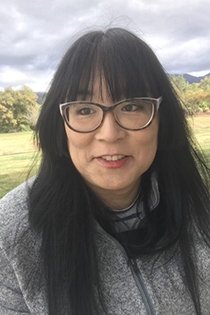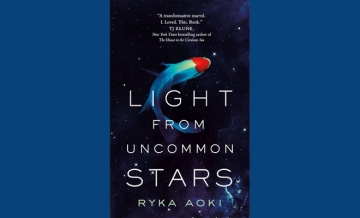Ryka Aoki is a poet, composer, teacher, and novelist. Her latest novel Light From Uncommon Stars (TOR Books, 2021) was an Alex, SCKA, and Otherwise Award winner, and was also a finalist for the Hugo, Locus, and Ignyte Awards. Ryka is a two-time Lambda Literary Award finalist for her collection Seasonal Velocities and Why Dust Shall Never Settle Upon This Soul, and her first novel, He Mele a Hilo was called one of the “10 Best Books Set in Hawaii” by Bookriot. She has been recognized by the California State Senate for “extraordinary commitment to the visibility and well-being of Transgender people,” and her work has appeared or been recognized in publications including Vogue, Elle, Bustle, Autostraddle, PopSugar, and Buzzfeed, as well as the Smithsonian Asian pacific American Center. She was also honored to work with the American Association of Hiroshima Nagasaki A-Bomb Survivors, where two of her compositions were adopted as the organization’s “songs of peace.” Ryka also appears in the recent documentaries “Diagnosing Difference” and “Riot Acts,” as well as writing for and acting in the award-winning film “Transfinite.” She is a two-time Lambda Award finalist, and winner of the Eli Coppola Chapbook Contest, the Corson-Bishop Poetry Prize, and a University Award from the Academy of American Poets. She is also a Professor of English at Santa Monica College, a pianist, and is starting to learn to play the violin.
Ryka Aoki’s Website





